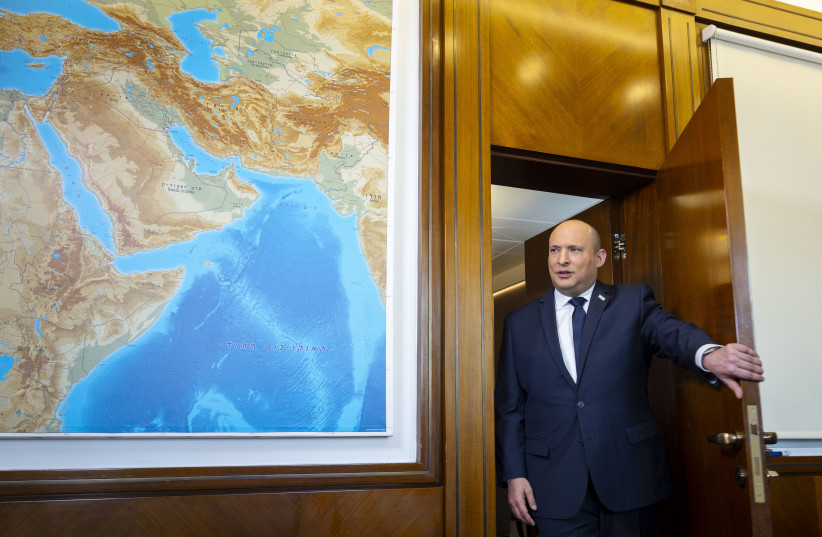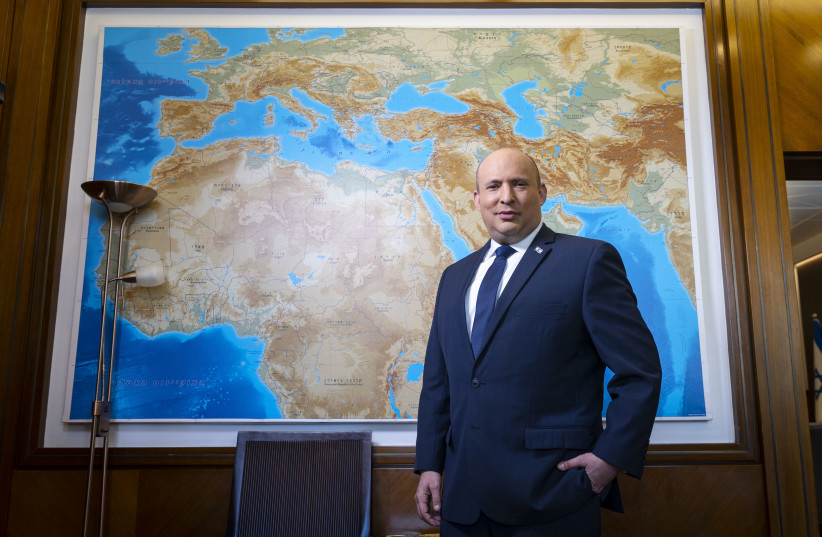“Whoever thinks an agreement will increase stability is wrong,” he added.

The Iran nuclear deal that world powers are negotiating in Vienna will make it harder to stave off a nuclear Iran, Prime Minister Naftali Bennett warned at the opening of Sunday’s cabinet meeting.
“Foremost among the threats to the State of Israel is Iran,” Bennett said. “We, as the cabinet, are responsible for taking on the Iranian nuclear [threat], and are closely following what is happening in the talks in Vienna.”
Bennett said that “the agreement and what appears to be its conditions will damage the ability to take on the nuclear program.
“Whoever thinks an agreement will increase stability is wrong,” he added. “It will temporarily delay enrichment, but all of us in the region will pay a heavy, disproportionate price for it.”
Bennett pointed out that, in recent weeks, Iran has been upping its aggression in the region, at the same time as it negotiated in Vienna.
Israel is working to strengthen itself militarily for the coming decades, the prime minister said.
“Israel will maintain freedom of action in any situation, with or without an agreement,” he stated.
World powers have been negotiating on-and-off with Iran for the past 10 months for the Islamic Republic and the US to return to compliance with the 2015 Joint Comprehensive Plan of Action nuclear deal, which restricted Iran’s uranium enrichment – but not its ballistic missile program or funding of proxy militias – until 2030, along with the gradual lifting of sanctions. The US left the deal and placed heavy sanctions on Iran in 2018, due to its malign actions in the region and evidence, found in an archive smuggled out by the Mossad, that its nuclear program was a weapons program, contrary to Tehran’s denials.
Bennett’s remarks came as Israeli officials are concerned that the renewed deal with Iran will maintain the regime’s time to nuclear breakout at less than six months. One of the flagship goals of the JCPOA in 2015 was to keep Iran a year away from nuclear breakout.
US Special Envoy for Iran Rob Malley admitted in an interview with MSNBC over the weekend that the breakout time in a new deal would be shorter than the original JCPOA.
“Because of the advances that they’ve made over the years since we withdrew from the deal…it’s going to be hard to recapture the full non-proliferation benefits, the full breakout timeline,” Malley said. “That’s obviously one of the many catastrophic consequences of the decision to leave the deal.”
Iran’s current breakout time, without any deal, is weeks away, Malley argued, and a deal would extend that timeline.
“We have differences with Israel, but we are working hand in glove with them to make sure our common interests are defined,” Malley stated.
Israeli officials are also concerned about the Biden administration waiving sanctions for other countries to provide enriched uranium for the Tehran research reactor, convert its Arak heavy water research reactor and send spent and scrapped reactor fuel abroad.
The State Department said that these measures will allow “disposition of stockpiles and other activities of nonproliferation value,” and argued that the waivers are not a concession to Iran.
Content retrieved from: https://www.jpost.com/israel-news/politics-and-diplomacy/article-695645.
